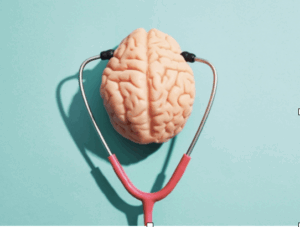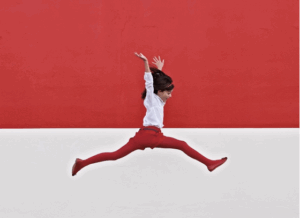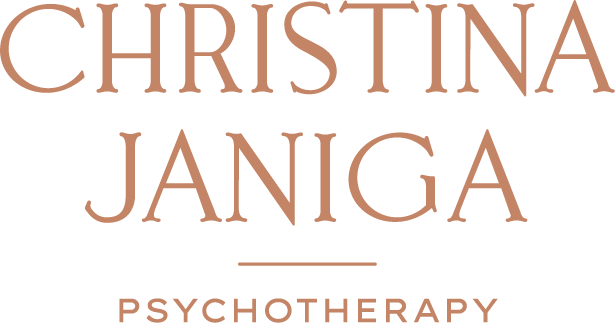Christina Janiga Psychotherapy - Blog
This blog is not a substitute for therapy, but provides evidence-based education for the purposes of self-help and information
Cognitive Behavioural Therapy (CBT) for Addiction & Recovery: Reclaim Control, Confidence, and Clarity
Cognitive Behavioural Therapy (CBT) is one of the most effective and evidence-based therapies for treating substance use disorders, addictions, and relapse prevention. If you’re struggling with cravings, triggers, or cycles of shame and self-sabotage, CBT can help you build healthier coping strategies and take back control of your life.
Through CBT, we work together to identify how unhelpful thoughts and behaviours are keeping you stuck, and replace them with healthier, more empowering patterns. Whether you’re early in recovery, facing relapse, or just beginning to explore sobriety, CBT offers a practical, structured path forward.
What is CBT?
Cognitive Behavioural Therapy (CBT) helps you understand how your thoughts, emotions, and behaviours are connected. Often, unhelpful thinking patterns influence your emotions and actions, keeping you stuck in negative cycles. CBT teaches you to recognize and challenge these thoughts, replacing them with more balanced, realistic ones. In addiction recovery, this awareness is critical: it allows you to catch yourself in destructive cycles and make different choices in real time.
Beyond thoughts, CBT encourages small, practical steps to change behaviours that may contribute to stress, addiction, symptoms of anxiety and depression or other difficulties. These actions help break unhealthy patterns and build new, positive habits. By learning new skills and coping strategies, you gain tools to manage challenges and build confidence over time.
CBT is goal-focused and collaborative, empowering you to take control and create lasting, positive change in your life. It’s a flexible approach that can be tailored to your unique needs, helping you navigate life’s challenges with greater clarity and resilience.
Beyond insight, CBT focuses on taking action. Small, consistent behavioural changes — like setting boundaries, using coping skills, or shifting your internal dialogue — create momentum for real growth.

How CBT Helps with Addictions and Recovery: A Versatile Approach for Healing and Growth
CBT for addiction is not about judgment — it’s about understanding your brain, your behaviours, and your deeper needs. Together, we explore how substance use has functioned in your life and develop concrete skills to support long-term healing.
Psychotherapy sessions grounded in Cognitive Behavioural Therapy (CBT) for addictions and recovery may include techniques such as:
- Identifying, challenging, and reframing unhelpful thoughts
- Identifying high-risk situations, cravings, urges, and emotional triggers
- Reduce shame, self-blame, and negative self talk
- Building coping strategies and learn tools for distress tolerance, emotional regulation, and stress management
- Increasing self-awareness and emotional regulation
- Clarifying values and aligning behaviour with personal goals
- Build a sustainable relapse prevention plan
- Strengthening problem-solving and decision-making skill

This therapy is collaborative, strengths-based, and customized to your needs — whether you’re navigating addiction, recovery, or mental health concerns and symptoms like anxiety or depression.
CBT for Addictions and Co-Occurring Concerns
Addiction often doesn’t exist in isolation. CBT is an adaptable therapy that can support co-occurring mental health challenges, including:
Attention Deficit Disorder (ADD) and Attention Deficit Hyperactivity Disorder (ADHD): CBT helps improve focus, manage impulsivity, and develop better organizational and time-management skills. It also supports coping with frustration and emotional regulation challenges, often experienced with these conditions.
Obsessive-Compulsive Disorder (OCD): CBT, especially Exposure and Response Prevention (ERP), helps reduce the impact of obsessive thoughts and compulsive behaviours by gradually facing fears in a controlled way and learning to resist compulsions.
Oppositional Defiant Disorder (ODD): CBT can assist in improving emotional regulation, reducing oppositional behaviours, and developing healthier ways to express anger and frustration, while improving problem-solving and communication skills.
CBT Can Support Through Difficult Life Transitions Alongside of Addictions: Change Doesn’t Have to Break You
Life transitions are often where we grow the most, but they can also feel like our foundation is crumbling. If you are going through a career shift, relationship change, loss, or identity crisis, CBT is another therapeutic approach that can help you
- Navigate uncertainty with clarity
- Reframe negative thoughts
- Manage anxiety symptoms and overwhelm
- Build self-trust and inner strength
- Clarify your values and direction
You do not have to go through change alone, and you do not have to know all the answers yet.

CBT for Relapse Prevention and Building Confidence
One of the most powerful aspects of CBT is its ability to support long-term self-growth and healing. Confidence is not something you are simply born with; it is something you rebuild, especially after experiencing setbacks, relapses, pain, or moments that shook your sense of self. CBT gently helps you re-learn how to trust yourself, step into your strengths, and take small, meaningful steps forward, even when it feels hard.
Psychotherapy sessions, tailored with a CBT approach geared towards rebuilding confidence may include:
- Learning to quiet your inner critic
- Developing healthy self-talk
- Replace fear with curiosity
- Identify and celebrate your strengths
- Learning to step into your full potential, unapologetically
CBT for Relapse Prevention
Relapse does not mean failure. It’s a signal that something needs support. CBT gives you a framework to:
- Recognize warning signs before a relapse
- Manage cravings and stress more effectively
- Rebuild confidence after a setback
- Stay aligned with your long-term goals
- Maintain connection to your values, relationships, and purpose

About The Author
Krishauna Shlanger is a Registered Psychotherapist (Qualifying). Her work is rooted in a trauma-informed, culturally responsive lens. She support clients navigating addictions, anxiety, stress, and life transitions with warmth, respect, and compassion. Her approach blends advocacy, insight, and deep connection.
Having seen CBT transform lives in shelters, in trauma recovery, and among individuals rebuilding their sense of purpose, Krishauna believe in its power to foster long-term growth. Whether you’re recovering from hardship or reaching toward your next chapter, she will meet you where you are and walk alongside you as you reclaim your voice, your strength, and your story.
📍 Offering secure virtual sessions across Ontario
🧘🏽 Supportive of clients from all multicultural backgrounds
🧠 Experienced in CBT for addiction, anxiety, trauma, and recovery
🗓️ Flexible scheduling and free consultations available
Therapy is not about being “fixed” – it is about reclaiming your voice, your strength, and your story. Let’s begin this journey together. Book a free consultation today to get started!
Book a free 15 minuted consultation call with Krishauna
If you are interested in seeking therapy to help you overcome anxiety, substance use, addictions, or difficult life transitions, we encourage you to reach out to us for a free 15-minute consultation. During the consultation, we will answer any questions you have about our practice and our psychotherapists, and help you determine if we are the right fit for you. We believe that feeling comfortable with your therapist is essential for a successful therapeutic relationship.

